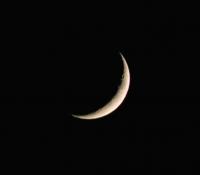 At the time of the Khaleefah Umar bin al Khattab (ra) a problem arose which required solving within the Khilafah State. A man came to Umar (ra) complaining he had loaned a man a sum of money that he had agreed would be paid back in the month of Shawwal. However, the loan remained unpaid and the month of Shawwal had passed. Umar (ra) asked the man which Shawwal he was referring to and this prompted him to think deeper about the issue.
At the time of the Khaleefah Umar bin al Khattab (ra) a problem arose which required solving within the Khilafah State. A man came to Umar (ra) complaining he had loaned a man a sum of money that he had agreed would be paid back in the month of Shawwal. However, the loan remained unpaid and the month of Shawwal had passed. Umar (ra) asked the man which Shawwal he was referring to and this prompted him to think deeper about the issue. “Amir-ul-Mu’mineen, we receive instructions from you every now and then, but as the letters are undated, and some times the contents of the letters differ, it becomes difficult to ascertain as to which instructions are to be followed.”
Umar (ra) knew that there had to be a resolution to allow for the functioning of the Khilafah so he convened a gathering to consult some of the senior Sahabah (ra) and experts in the field. Someone suggested adopting the Roman calendar whilst Hormuzan suggested the Persian calendar. Both suggestions were rejected in favour of adopting a new calendar that would meet the needs of the Muslims.
The next big question was to which year the calendar would start from. The opinions suggested ranged from using the Messenger (saw) date of birth, the beginning of his Prophethood, the year of the death of RasoolAllah (saw) or the date of the Hijrah (emigration) from Makkah to Medina as suggested by Ali (ra). After due consideration Umar (ra) decided to adopt Ali’s (ra) opinion and opted for the hijra year as the start of the Islamic calender.
The new Islamic calendar also had to have a starting month to denote when the previous year ended and the new year would start. Again, opinion differed as to which month this should be; some said Rabi al-Awwal because it was the month of Hijrah, others said Ramadhan as it is the month in which the Qur’an was revealed. Umar, Uthman and Ali (ra) all believed it should start in Muharram as it follows Dhul-Hijjah (the month of pilgrimage). From that day the Islamic calendar started on 1st Muharram in the year of the Hijrah.
One question arises, why did Umar (ra) choose the Hijrah above all of the other days that could have been chosen?
Ibn Hajar al-Asqalani, in his Fath Al-Bari, records that Khaleefah Umar is reported to have remarked: “The Hijrah has separated truth from falsehood, therefore, let it become the Epoch of the Era.”
This statement clearly illustrates the importance of the Hijrah. Contrary to certain interpretations, it was not a flight driven out of fear of persecution, if this were the reason Rasool SalAllahu (saw) could have left Makkah for Medina much sooner. Many of the companions had been given permission to emigrate to the land of Al-Najashi to escape the persecution but this Hijrah was different.
The significance of the Hijrah is understood from the sheer preparation and planning involved in meeting the tribal leaders of al-Aus and Khazraj, culturing them with Islam, creating a public opinion for Islam and the Prophet’s (saw) leadership and the clear programme that followed once Yahthrib became Medina tul-rasool indicated that the Hijra was a radical transformation of society. In Makkah the Muslims were weak and could only enjoin the good and forbid the evil through their speech, now they were able to do so through a practical implementation of Islam in Medina. The Hijrah was truly an epoch making moment because it culminated in the manifestation of the truth in Medina. Today we remember the start of the month of Muharram, the Hijri calendar and the New Year; let us not forget the struggles of our forefathers in making Islam dominant through the auspices of the Khilafah in Medina, the Arabian Peninsula and beyond.
